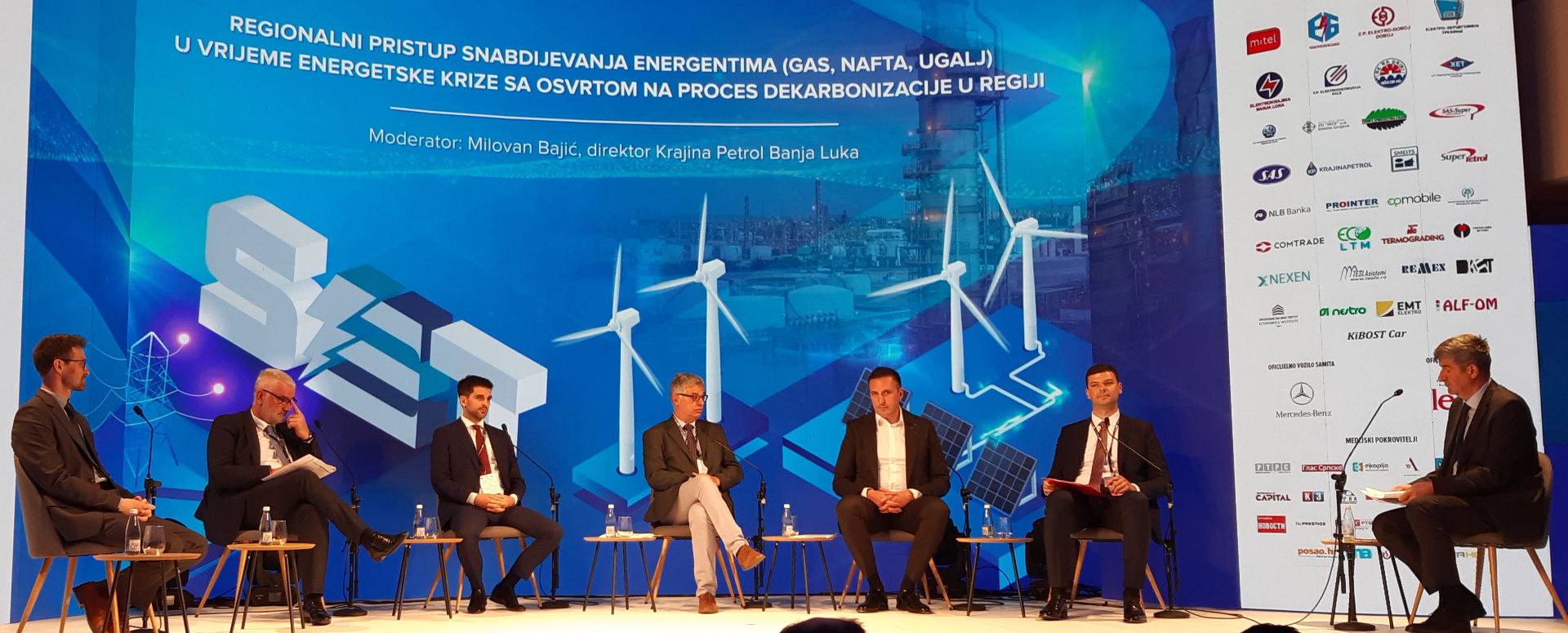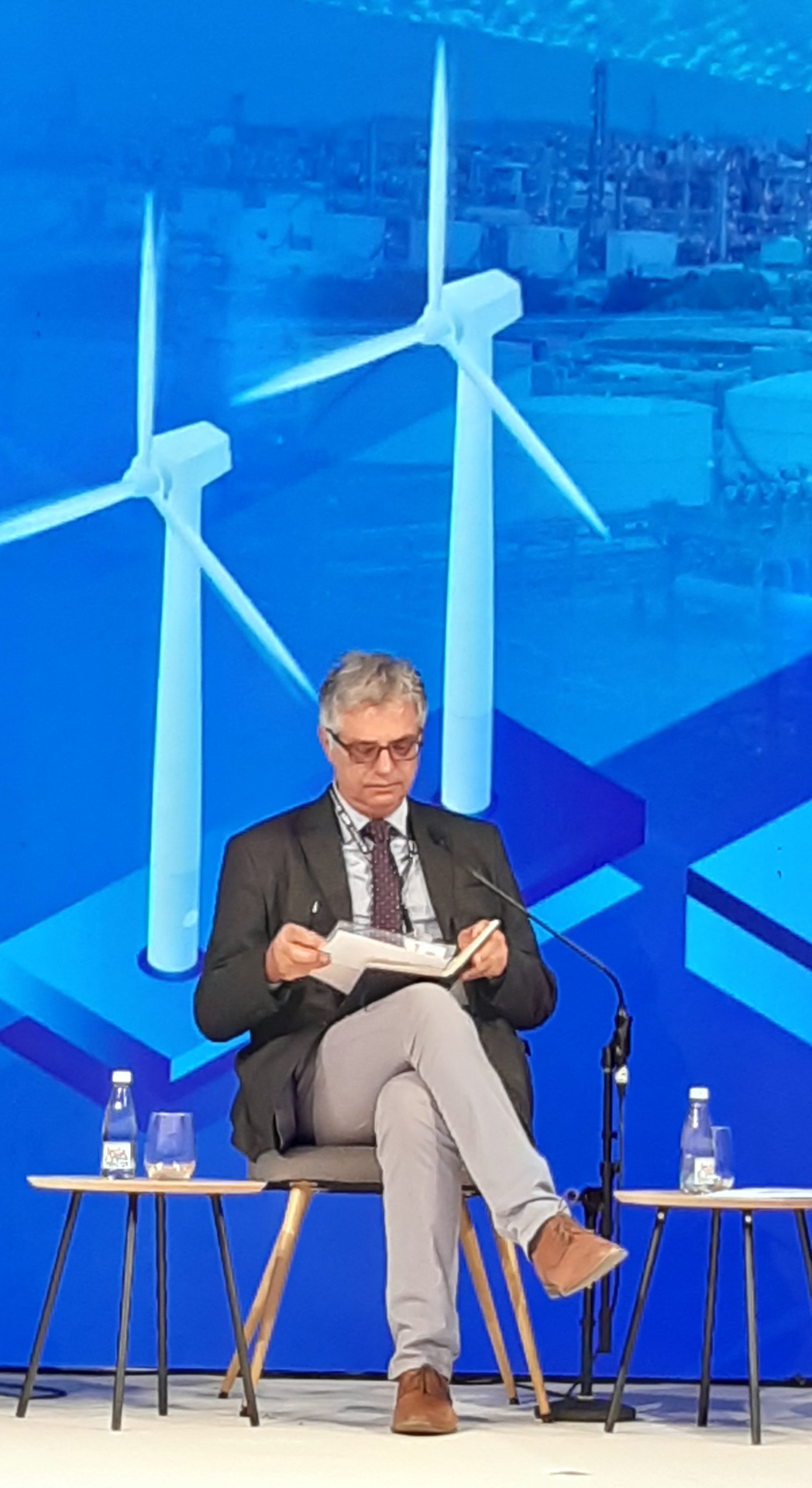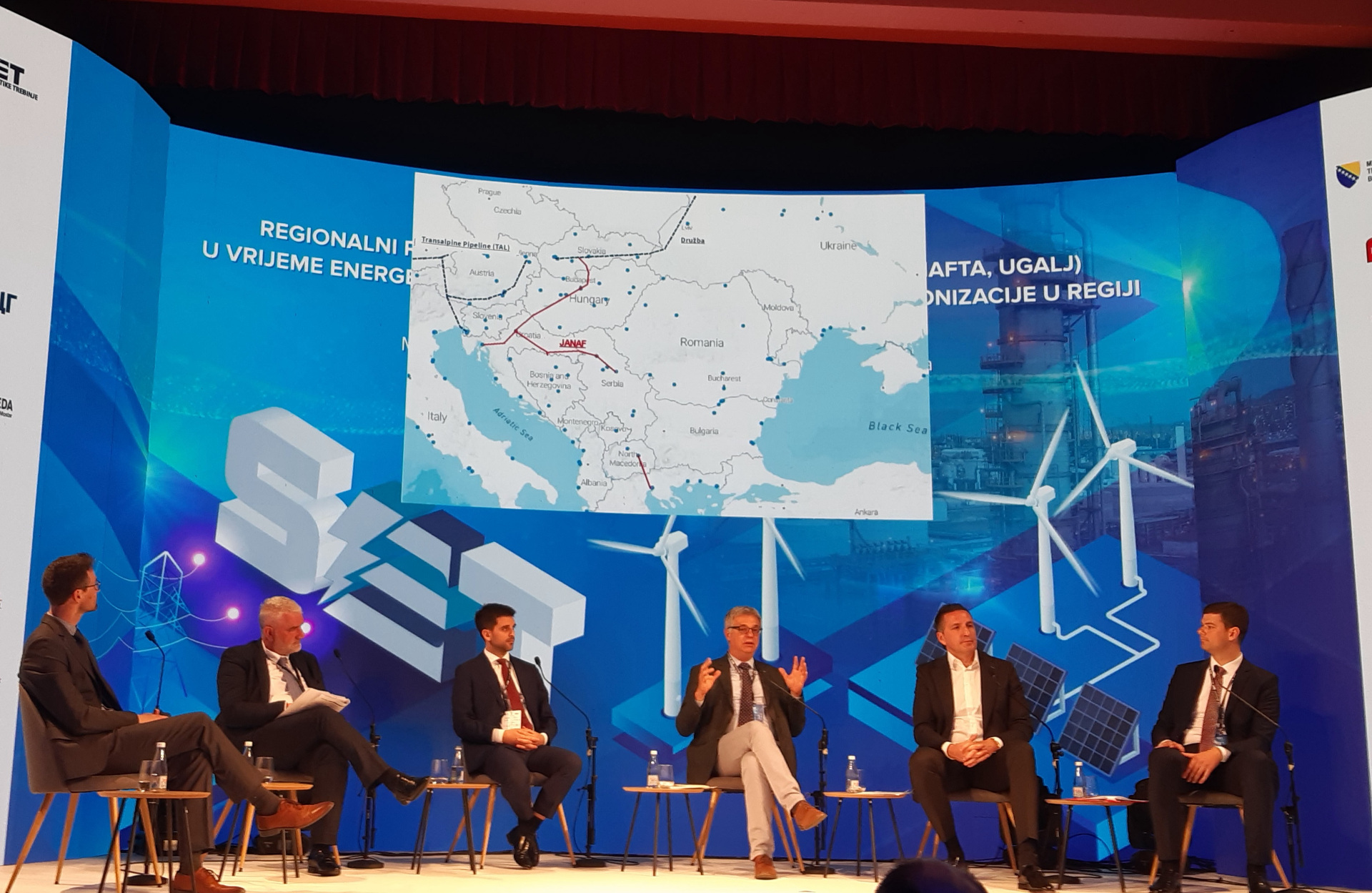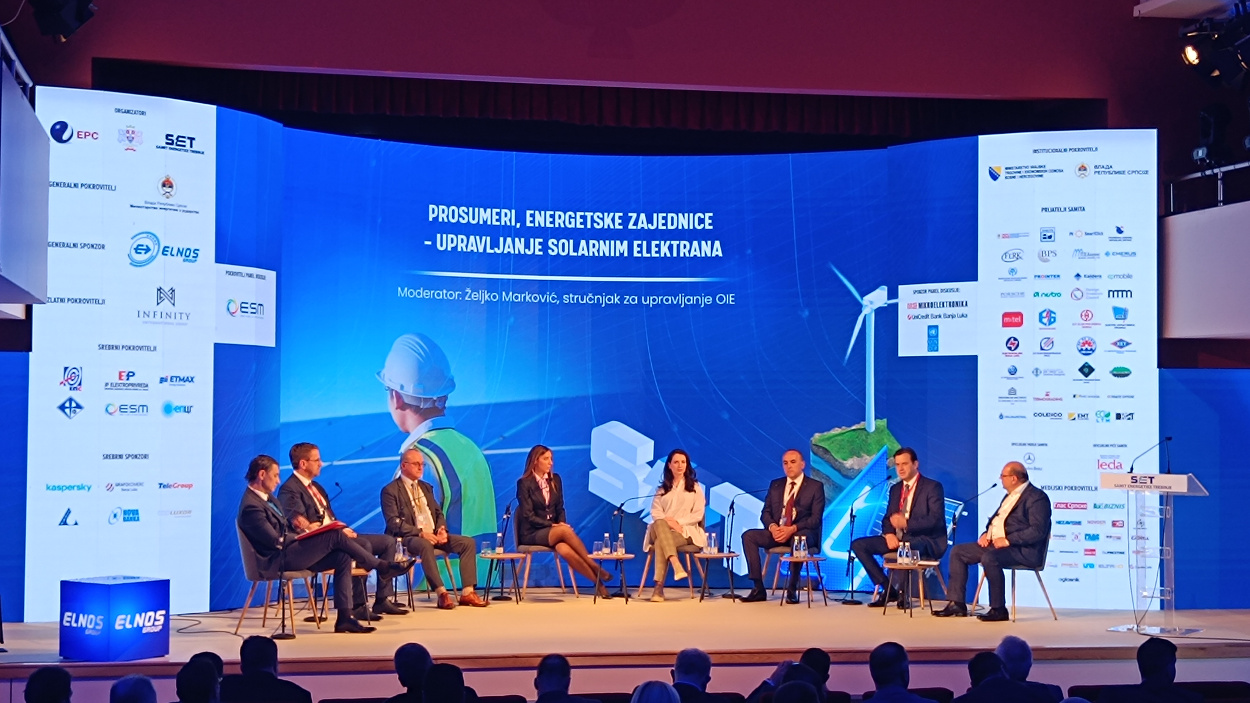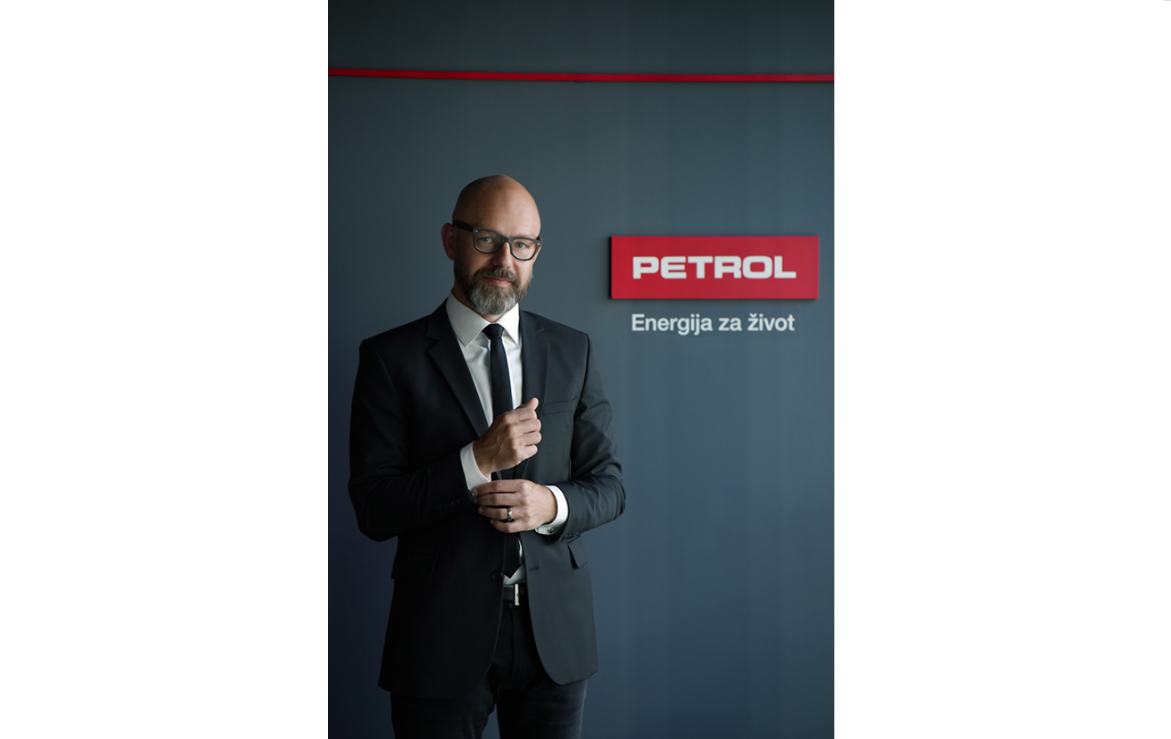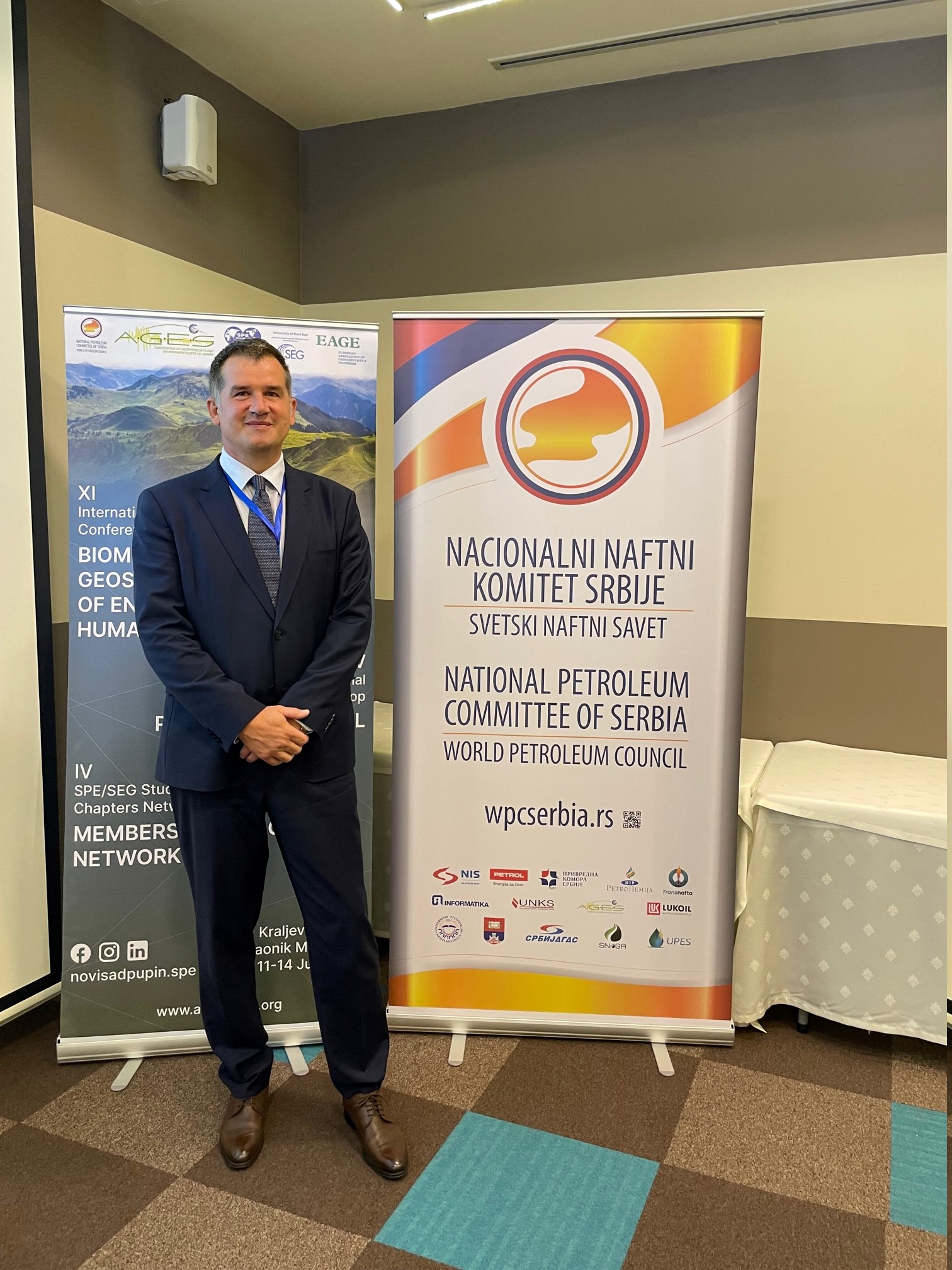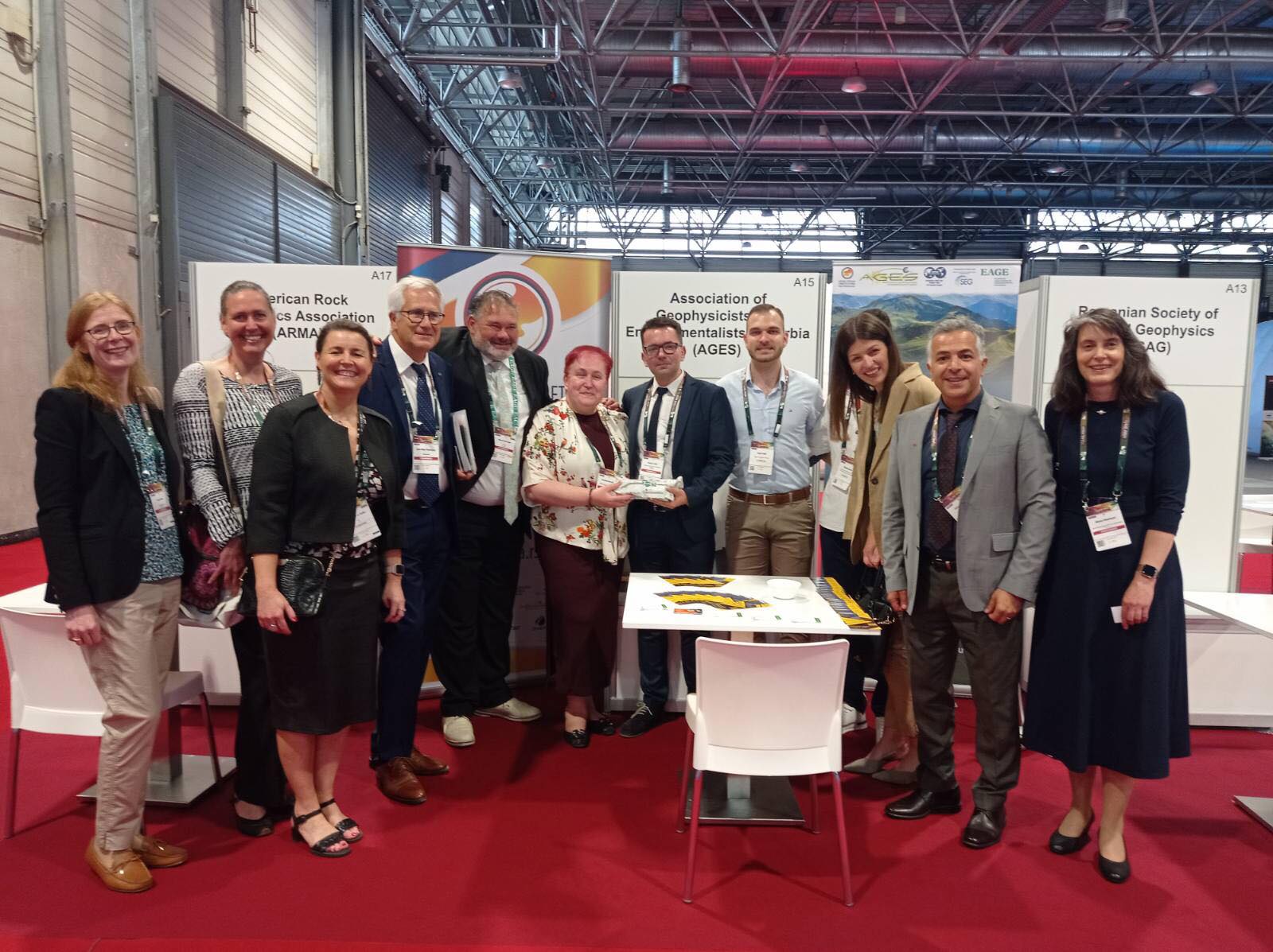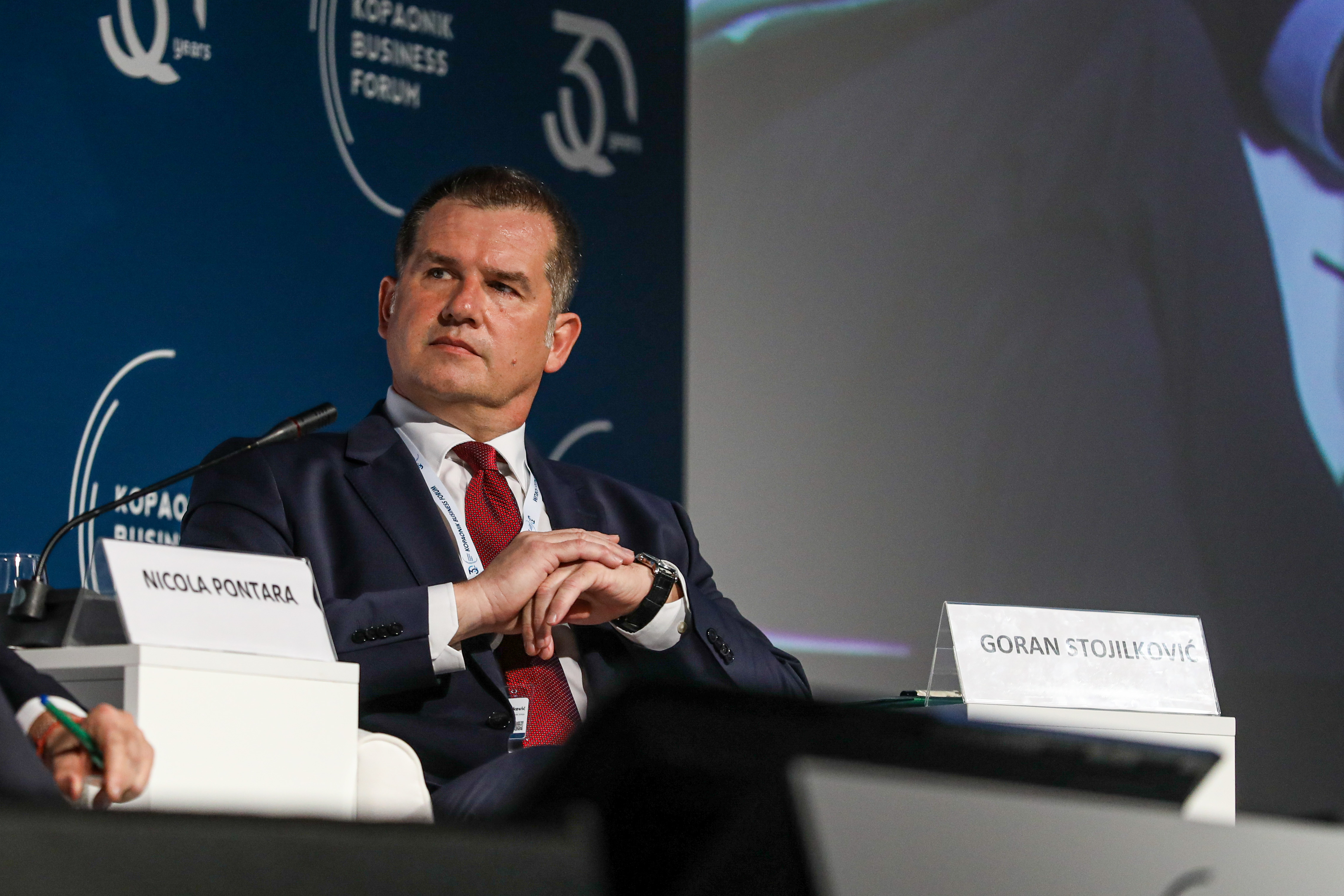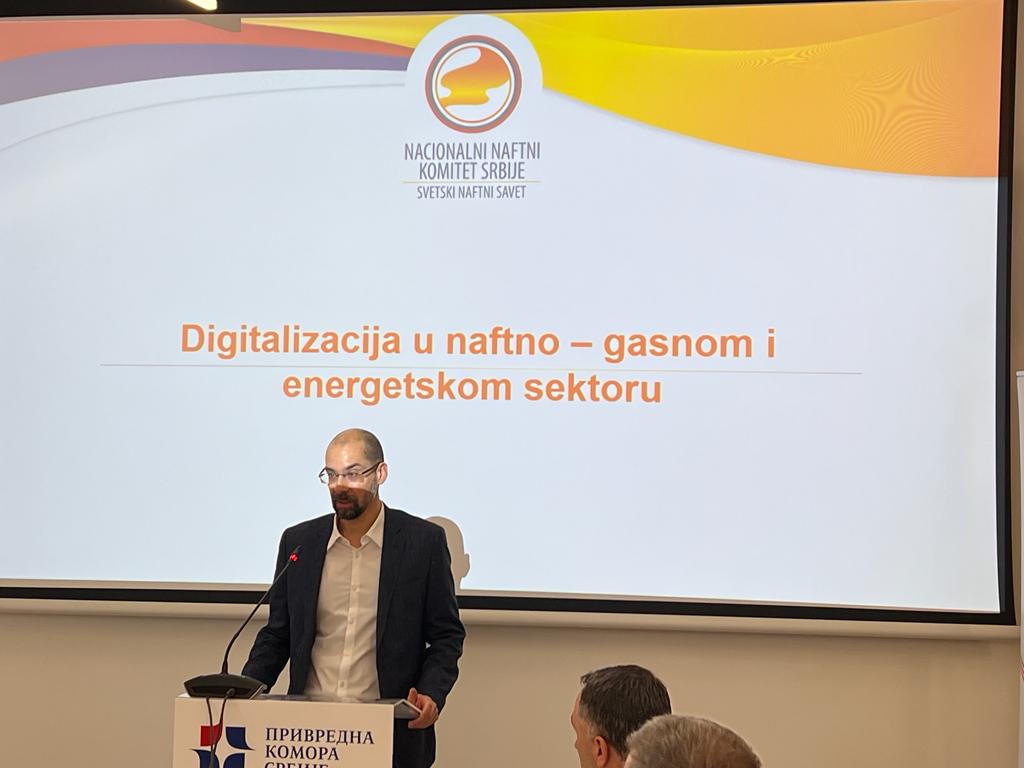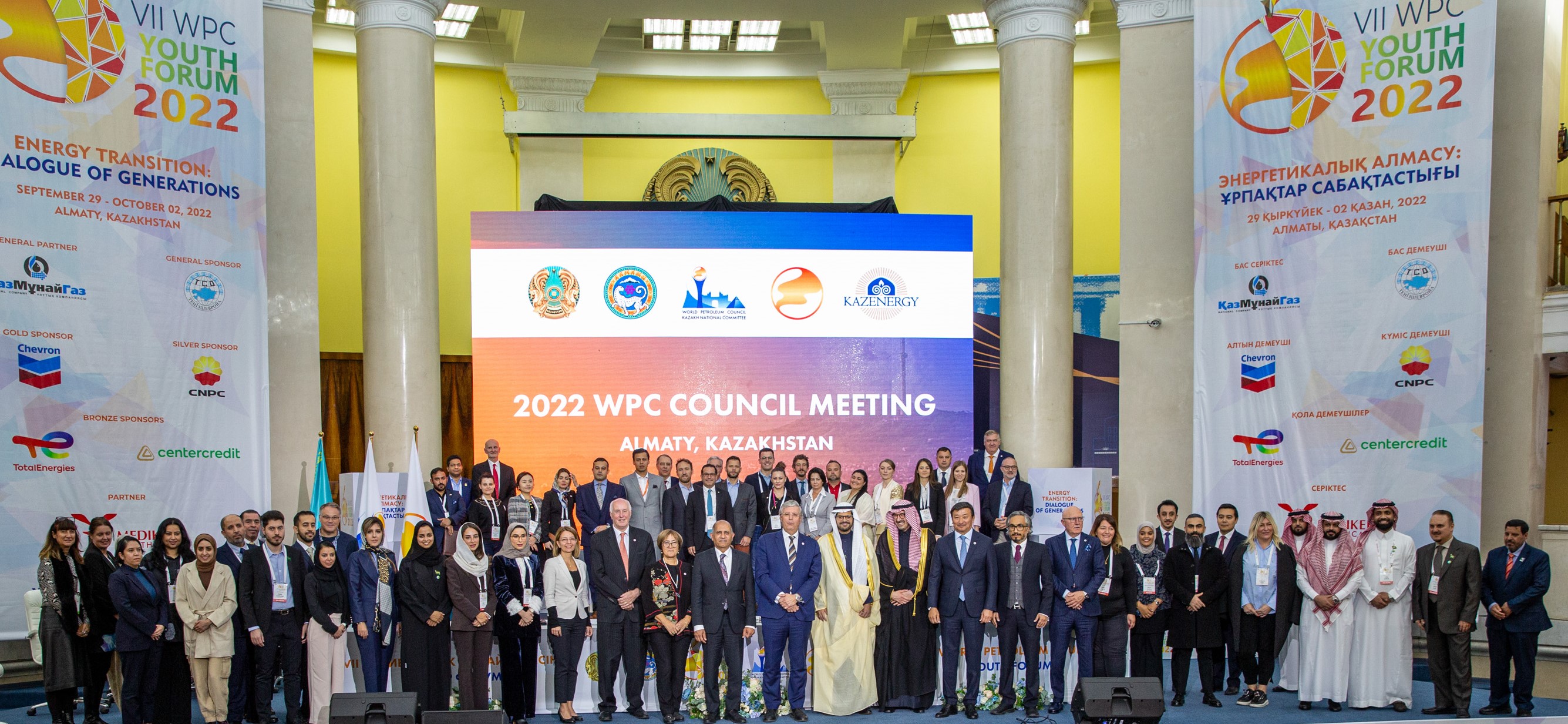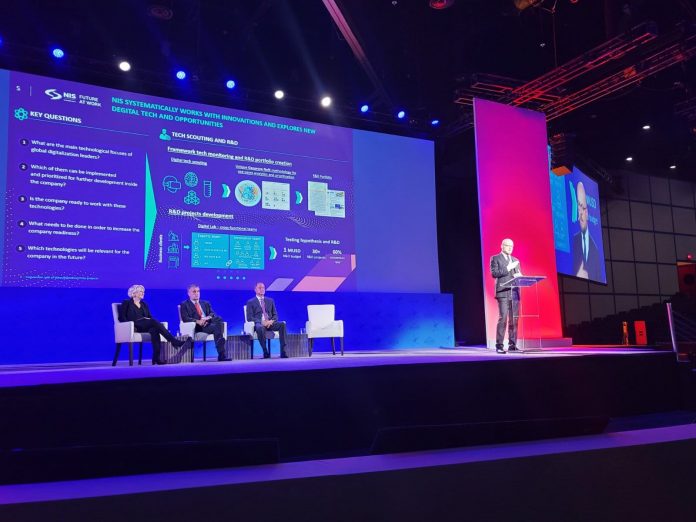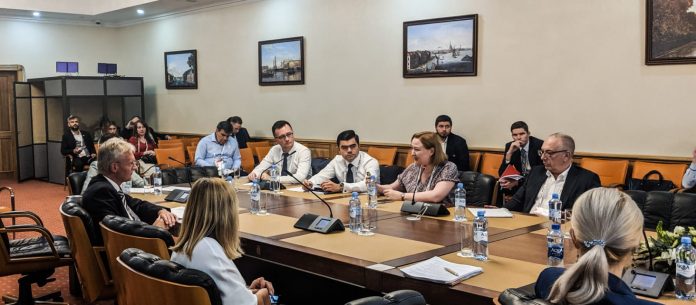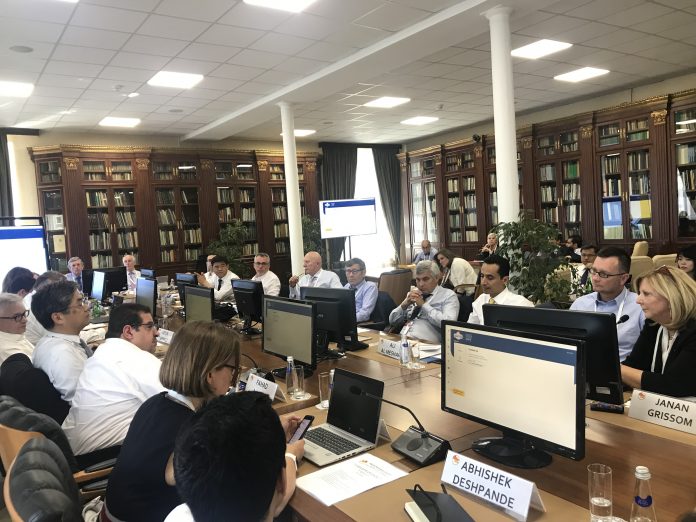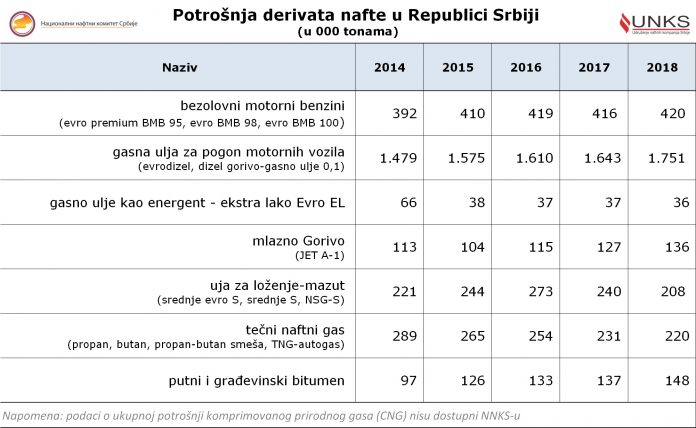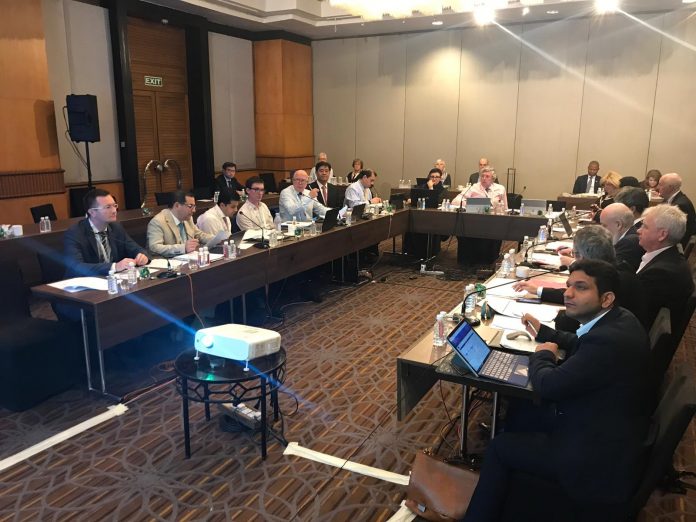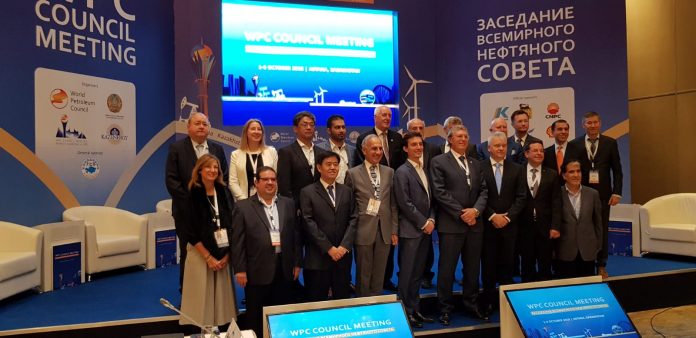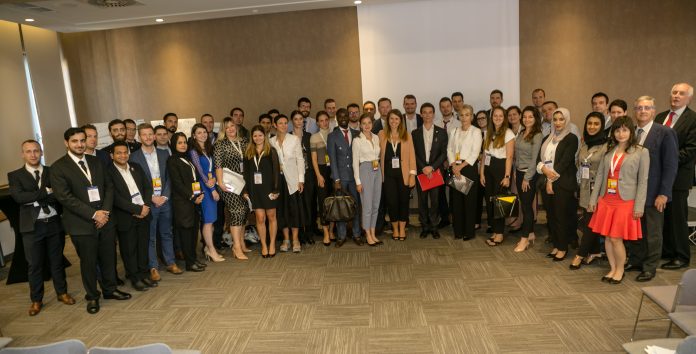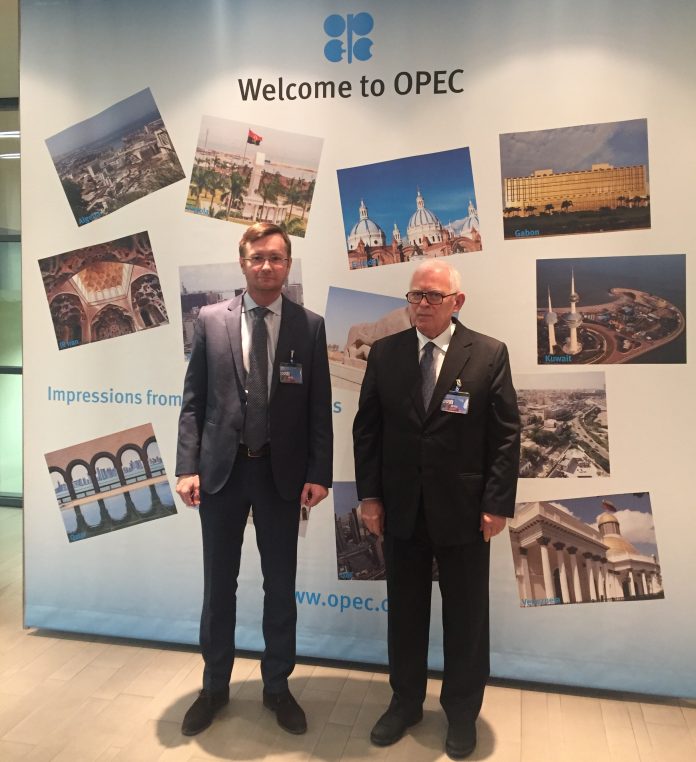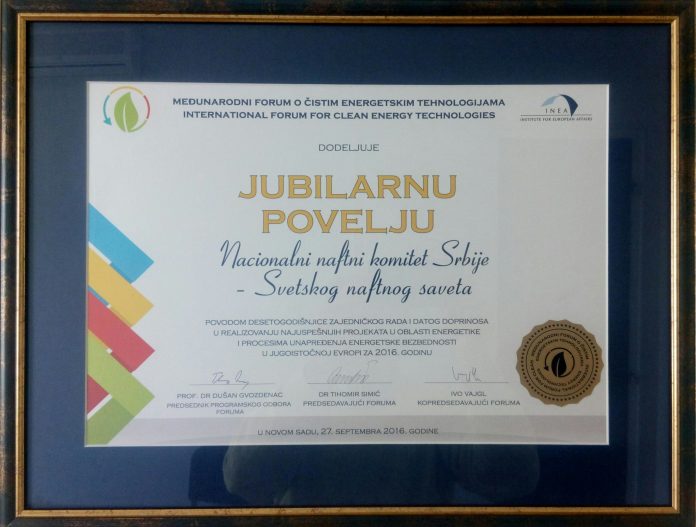Energy Future – What to Expect
Tomislav Mićović, member of the NPCS Executive Board, participated in the panel on the "Regional Approach to Energy Supply (Gas, Oil, Coal) During the Energy Crisis with Reference to the Decarbonization Process in the Region"
The Energy Summit "SET-TREBINJE 2023" was held for the fourth time, from March 22 through March 24, 2023, becoming one of the leading regional business events dedicated to the future of energy. Nine panels that provided a platform for discussion on the most current topics provided answers, exchange of experiences and enabled cooperation between the numerous participants. The themes of SET - TREBINJE 2023 are important for the development of the energy sector in the region and the compliance of the legislation regulating this area with the European Union directives, energy policy and integration process.
One of the summit panels was devoted to issues related to the acceleration of the regional sustainable plan and the transition to clean energy with a special emphasis on the role of the European Union in that process (the moderator of the panel was Janez Kopač, until recently Director of the Energy Community Secretariat and currently consultant of the EU4Energy Governance project). As a consequence to the serious energy crisis, many countries, regardless of how set they are on striving to achieve a quick transition to clean energy, due to the large percentage of coal in the total production of electricity, are reluctant to give up thermal power plants. The region is torn between the goals set by the Green Agenda and the need for a secure and stable supply.
The countries of the region have committed to harmonizing their regulations with EU standards, including decarbonization, i.e. replacing energy production from fossil fuels with renewable energy sources. Although they are aware of their obligations, the countries of the region will very likely seek the understanding of the EU for the dynamics of adapting to the deadlines in order to maintain their energy stability.
At SET 2023, issues relating to the price of electricity, the development of the electricity market, the security of the energy sector, the development of electromobility in the region, the supply of gas, oil and coal at the time of the energy crisis were discussed, as well as the perspective and trends relating to each of these energy sources, with a special emphasis on decarbonization. SET - TREBINJE 2023 was attended by representatives of the Government of the Republic of Srpska, the Ministry of Foreign Trade and Economic Relations of the Republic of Srpska, the Ministry of Energy and Mining of the Republic of Srpska, the Minister of Foreign Affairs of Hungary, representatives from energy and IT companies from the Republic of Srpska, Serbia, Montenegro, Slovenia, of Macedonia, representatives from the Federation of Bosnia and Herzegovina, the Energy Community.
The National Petroleum Committee of Serbia - World Petroleum Council was represented at the conference by: Tomislav Mićović, member of the Executive Board of NPCS - WPC and Marina Dabetić, President of the Supervisory Board. Tomislav Mićović participated in the panel on "Regional Approach to Energy Supply (Gas, Oil, Coal) During the Energy Crisis with Reference to the Decarbonization Process in the Region". The moderator of the panel was Milovan Bajić, Director of Krajina Petrol from Banja Luka, and the opening address at the panel was given by Goran Ašonja, Director of Gas Transport Pale with his presentation "Energy Crisis in the EU (2021-22) and the Decarbonization Process (using the example of natural gas)
The panelists were Momčilo Antonić, Director of GAS-RES Banja Luka, Nedeljko Elek, Director of Sarajevo-gas, Istočno Sarajevo, Aleksandar Ivanković, Executive Director of Optima Group a.d. Banja Luka, Hermedin Zornić, Oil Terminals FBiH, Janez Rošer, General Manager of Premogovec Velenje Slovenia. Mićović informed the panelists about events and trends in the oil and oil derivatives market in previous years when the market and production were seriously shaken by the Coronavirus epidemic, and then by the energy crisis caused by the events in Ukraine. In the closing speech of the panel, Mićović presented several conclusions:
1. In 2020, energy derived from oil accounted for 96% of energy used in transport, so the starting position for the process of decarbonisation in transport is very difficult in that sense.
2. The development of the economy and society will practically be dependent on oil energy for a long time. Every year, oil production increases compared to the previous year, the only exception being the year of the pandemic, and this has been an on-going trend for decades.
3. In order to successfully implement energy transition, it is necessary to simultaneously secure much larger investments in the development of production, transport and distribution of green energy.
4. Relying on global political decisions, oil exploration and production giants have directed long-term investments towards the production of green energy while reducing investments in exploration of new oil deposits. This means that in 5 to 10 years, the global energy market will no longer have a strong enough support for economic growth relying on oil.
5. The energy crisis in 2022 changed somewhat the approach to investments in the exploration of new oil deposits, however, investments in oil exploration indicate that there will indeed be less oil supply in 2023-2050. If the problems related to new oil deposits and the problems related to the transition to new energy sources are not solved in parallel, the process of decarbonization and the transition to new energy sources might create serious problems.
6. Predictions and estimates always have a certain percentage of error. At the beginning of the 20th century, transport development strategies were solely based on the increase in the number of new horse-drawn carriages. However, after the revolutionary technical and technological inventions in the field of exploitation, transport, processing of crude oil, as well as the use of oil derivatives, they completely changed, resulting in the 20th century becoming the age of oil when it comes to transportation.
7. As for the process of decarbonization of the transport sector, the future is uncertain because electric cars with batteries have been present for a long time and, although significantly improved, they are still a product of the past, lithium-ion batteries are the present, and what we can expect in the not so distant future, hydrogen or something else, we don't know today. Each of the different types of new energy sources has advantages and disadvantages that determine the realistic possibility of utilization of these energy sources, both in terms of technical and technological aspects, as well as in terms of the economic aspects, price, profitability and economic efficiency.
8. It would be realistic to expect that science will soon offer solutions that will direct further activities regarding energy sources and decarbonization in a new direction.




